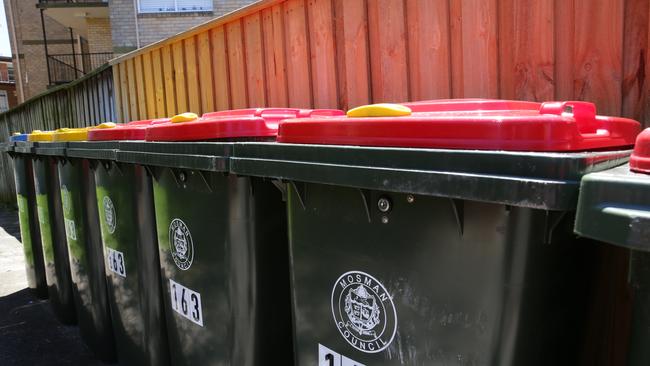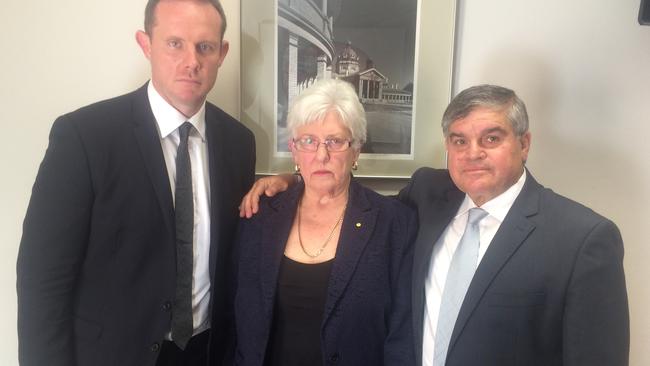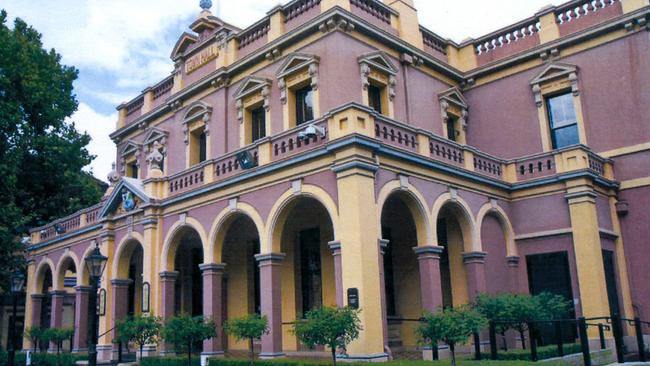From DAs to bin collections, what you need to know about council mergers in NSW
OVERNIGHT more than 30 councils vanished. So will the pool be open tomorrow? And what about your bins? We give you the new council lowdown.

“DON’T worry, there’s nothing to see here” appears to be the mantra of the NSW Government when it comes to its audacious plan to slash the number of councils in NSW.
On Thursday, NSW Premier Mike Baird announced more than 40 local councils had disappeared overnight to be replaced by 19 new super councils. Canterbury-Bankstown council, with 350,000 residents, could emerge as the largest local authority the state has ever seen.
While familiar council names including Marrickville, Manly, Randwick, Rockdale, Holroyd, Ryde, Lane Cove, Gosford, Pittwater and Dubbo will be but a distant memory.
Local Government Minister, Paul Toole said on Thursday, it will be “business as usual” for residents in new council areas.
Not so, says Labor Leader Luke Foley. “This is the savaging of local democracy in NSW by Mike Baird. For the next 16 months across NSW we’ll have hand-picked appointees of Mike Baird implementing his policies, with local communities cut out of any decision making.”
So with councils looking after everything from local roads to development applications to pools, libraries, and cultural events, how will the great council combination will affect you.
Have all NSW’s councils been affected?
No. Of the 150 plus local councils in the state, 43 were affected by Thursday’s announcement. They will be stitched together in various ways to form 19 new councils. A further 30 odd councils will likely be merged together into 12 authorities, pending court appeals by disgruntled mayors.
The remaining 75 or so councils, including Liverpool, Blacktown, Wagga Wagga, City of Sydney, Penrith and Albury, will remain in their current form. A full list is at the bottom of the page.
Is it really “business as usual”?
Not for the mayors and councillors of the authorities to be merged who found out on Thursday that they had all been let go.
The now former Mayor of Leichhardt, Darcy Byrne, was underwhelmed to say the least. “We found out we’d been sacked on social media, which is symptomatic of the completely disrespectful way that the Liberal Party and the Baird Government have handled this entire process,” he told the Inner West Courier.
“The way that all of our elected representatives have been sacked, without even the basic decency of a phone call, is a sign of things to come.”
Wait, so my council has already merged?
The Government isn’t hanging around. If you live in an area covered by the first tranche of 40 or so councils then, officially, yes your council has gone. But, in most other regards it hasn’t.
The former council websites are still up and running, the town hall is open and the council logo is everywhere. One of the biggest issues in any merger — be it in the public or private sector — is IT systems and they can take months to bring together. Until that time it’s likely you’ll still deal with what looks an awful lot like your old council.
In fact, elections to the new councils aren’t due until next September.

But my local Mayor is still in place until next September right?
Nope, they’re gone. Welcome to a new 16-month era of indirect rule from Macquarie St. Rather than letting mayors and councillors see out their terms, the Government has decided to sack the lot of them and replace them with a single administer, often a general manager from one of the previous councils.
Aren’t only dodgy councils sacked?
Certainly councils under scrutiny have often seen the NSW Government step in to run affairs. This indignity has befallen both North Sydney and Auburn, the former council of Salim Mehajer, in recent months. But to sack the councillors of well-run authorities is highly unusual.
So, the people I voted for now have no say at all?
They no longer have the final say. But the Government has said former councillors and mayors will be invited to join “local representation committees” but there’s a catch — only those who support the mergers can apply.
“Councillors who have shown a commitment to making the new council a success will have the opportunity to get involved,” Mr Baird said on Thursday.
How much is this all going to a cost?
A cool $500 million with each council getting a few million to cover the merger costs.
But the Premier says it will be worth it. “Reducing waste and red tape through mergers could free up close to $2 billion over the next 20 years, allowing councils to fund better services and new infrastructure for communities or lower rates,” he said.

But let’s get down to the nitty gritty, will my bins still be collected?
The Government has been at pains to point out that the day to day services councils deliver will still happen. So your rubbish will be collected, the pool will remain open and the library (I know, what’s a library?) is there to be used. When the new councils fully come into force, after the 2017 elections, is when you are likely to see big changes taking place.
How do I pay my rates?
Keep paying them just the way you do now until told otherwise. The merger of councils is bound to cause mayhem in certain areas but they’ll know quick sharp if you’ve stopped coughing up.
We want to build a giant tree house in my yard? Am I still allowed to?
You’ll have to make a development application in the same way you do now, most likely through the previous council. But rather than councillors deciding if you can build the tree house the now almighty administer will, until the elections in September 2017, say yay or nay. So don’t annoy them.
A question mark does remains over significant developments like large apartment complexes and shopping centres. There’s every possibility decisions on these could be delayed with administers unwilling to be saddled with the sole responsibility of deciding on such enormous projects.
If the councillors are going, what about the staff?
Most staff are safe for at least three years. The exception is senior staff. After all, you only need one general manger in each council. Once those three years are up, though, expect some streamlining to go on as the new councils merge services.




